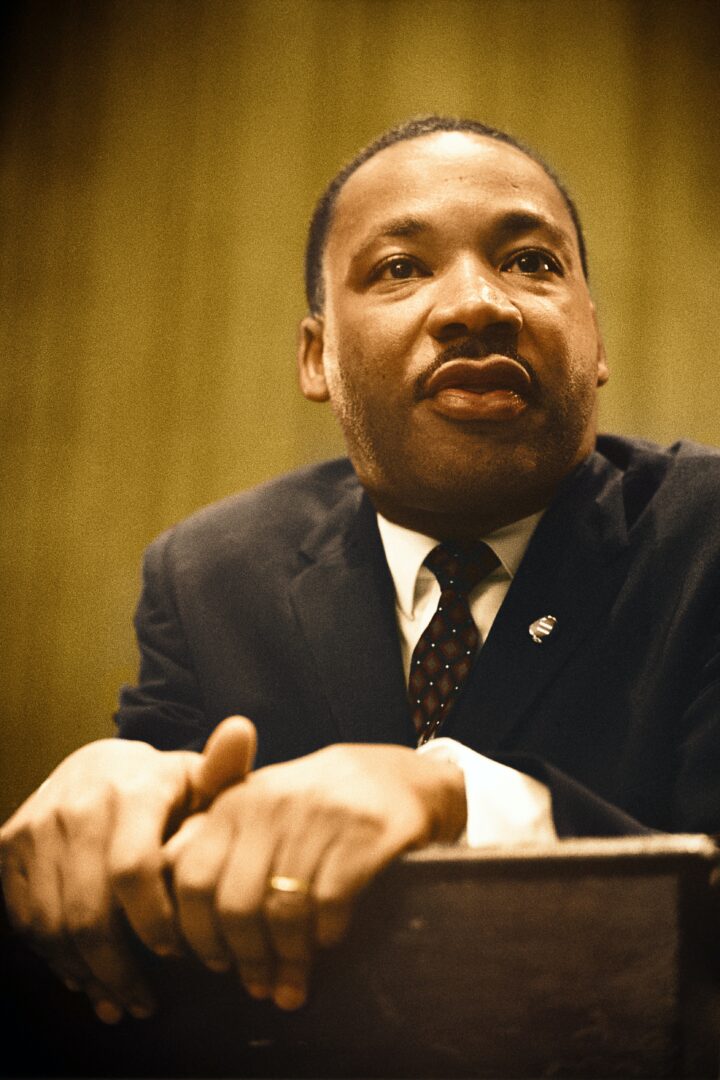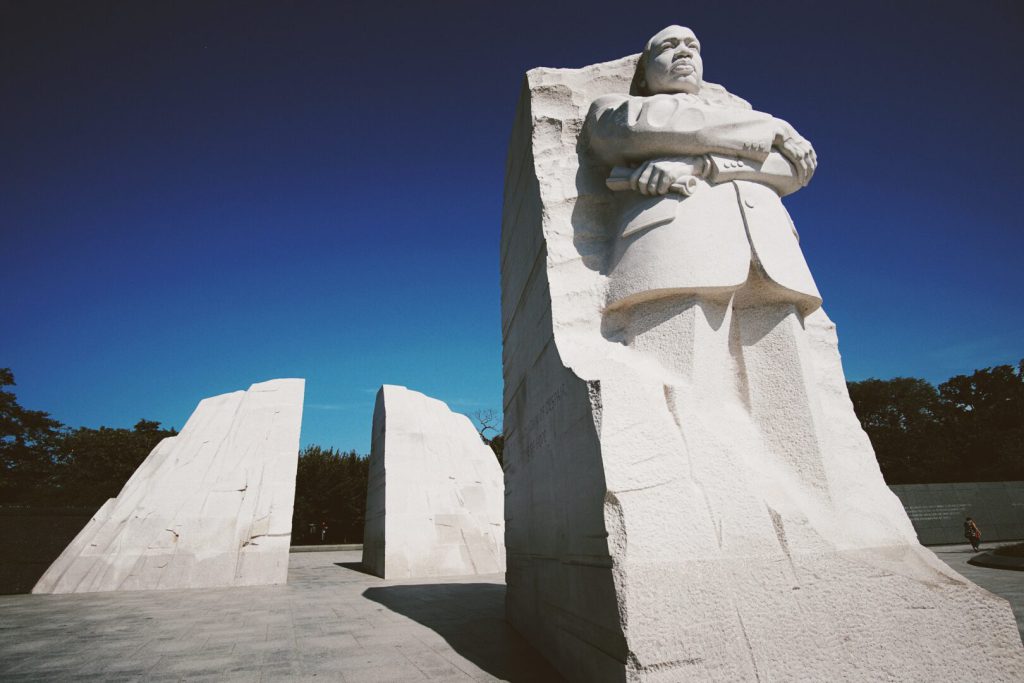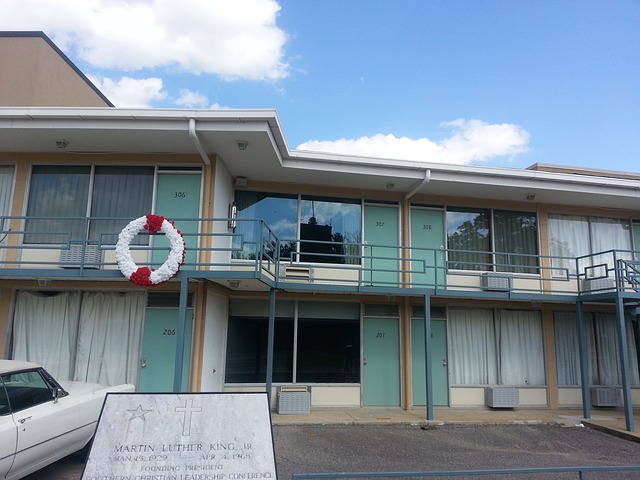
Dr. Martin Luther King Jr.’s birthday is January 15 but is celebrated as a federal holiday on the third Monday of each January. Federal offices are closed and many workplaces have the day off.
If you are traveling on the road, it’s a great time to stop at one of the many places where you can learn more about Dr. King’s legacy. Some historic sites and all national parks are offering free admission on January 18, 2021. Here are some great options where you can stop and reflect on Dr. Martin Luther King Jr. and how his words and actions helped shape the country.
Due to changing Covid-19 restrictions, be sure to check with your destination when planning a trip so you know they are open and accepting visitors. While a good number of sites are currently closed, they have plans to open as a vaccine becomes more widely available so you could use the holiday as inspiration to plan a trip later this year.
10 Historical Sites to Visit in Honor of Martin Luther King Jr Day
U.S. Civil Rights Trail
The U.S. Civil Rights Trail leads through hundreds of sites across fifteen states that tell the story of the civil rights movement in the United States. Some are well-known places like the Edmund Pettus Bridge in Selma, Alabama and the Woolworth’s department store in North Carolina that began a movement of student sit-ins. There are also sites perhaps you’re unfamiliar with, like the home of NAACP member Memphis Tennessee Garrison in West Virginia.
Even if you can’t travel to each place, the website for the Civil Rights Trail is full of information on the movement and has interactive features that are worth looking through with kids, or with anyone who wants to learn more. If you are traveling with children, and either homeschooling, roadschooling, or simply taking a trip, you may want to do some research before visiting these places. PBS Kids has a list of books to read for MLK Day, and many other websites offer book lists as well.
Some of the following places are along the Civil Rights Trail, some are not. But all are significant ways to learn more about and to reflect on the legacy of Dr. Martin Luther King Jr.

1.) Martin Luther King, Jr. Memorial, Washington, DC
The memorial is in West Potomac Park near the National Mall where King gave his famous “I Have A Dream” speech in 1963. The Stone of Hope at the memorial is a granite statue of King and was also inspired by his speech. King is the first Black person to be honored with a memorial near the National Mall.
The Inscription Wall holds quotes from King’s speeches, sermons, and writings and were chosen by a council that included Maya Angelou, Henry Louis Gates, Clayborne Carson and others. They stress “four primary messages of Dr. King: justice, democracy, hope, and love.”

2.) National Civil Rights Museum at the Lorraine Motel, Memphis, TN
This museum in Memphis, TN is located in the former Lorraine Motel, where Dr. King was assassinated on April 4, 1968. The museum has interactive exhibits and collections of historic pieces and it hosts speakers and special events that allow visitors to walk through history.
3.) Dexter Ave Baptist Church, Montgomery, Alabama
You can tour the church where Dr. King worked and see the pulpit where he gave his sermons. There is also a mural depicting him rising to heaven as an angel. Entry to the church is free and you can set up a private tour with a reservation ahead of time.
4.) Sixteenth Street Baptist Church, Birmingham, Alabama
On September 15, 1963 a group affiliated with the Ku Klux Klan placed a bomb in the basement of this church. Four girls in the downstairs bathroom of the church were killed when the bomb exploded.
Visitors to the church can learn more about this terrible event, and also about the church’s history as the first Black church in Birmingham, founded in 1873.
5.) Edmund Pettus Bridge, Selma, Alabama
Activists including Dr. King and the Student Nonviolent Coordinating Committee organized a 54-mile march from Selma to the state capital in Montgomery to demonstrate for voters’ rights. The groups’ first attempt at a march was on March 7, 1965, also known as Bloody Sunday after the demonstrators were attacked by local police and state troops and had to turn back. The Selma Interpretive Center has exhibits for visitors, along with a bookshop.

6.) Martin Luther King Jr National Historical Park, Atlanta, Georgia
This national park is home to Dr. King and his wife Corretta’s final resting place. You’ll also find his birthplace on Auburn Avenue, and the Ebenezer Baptist Church where he was baptized and where he and his father preached within the boundaries of the park. Ebenezer Baptist is also where the funeral for close family and friends took place after King’s assassination. After the service, 300,000 people lined the processional route to Morehouse College where the public service took place.
If you are traveling with kids, you’ll want to check out the “Children of Courage” exhibit at the King Center Visitor Center. It includes interactive and hands-on exhibits that share how children participated in the Civil Rights Movement and bring many of the world-changing events of the time to a level children can understand. “Courage to Lead” shares the paths of Dr. King and the Civil Rights Movement, and shows how the two eventually merged. There is also a playground, and the “I Have a Dream” International World Peace Rose Garden where you can wander and reflect on what you’ve learned.
7.) Birmingham Civil Rights Institute, Birmingham, Alabama
The Civil Rights Institute is across the street from the 16th St. Baptist Church and is affiliated with the Smithsonian Institution. Exhibits at the Institute feature prominent events that shaped Dr. King’s life and the Civil Rights movement, like the bus boycotts and the arrest of Rosa Parks. There are also powerful exhibits recounting the history of Jim Crow laws after the Civil War. The Birmingham Civil Rights Institute also has an annual Martin Luther King Day commemoration on January 18th. Finally, there are online learning guides for children in grades K-12. They can log on from anywhere to learn more about the Civil Rights Movement in Birmingham and across the country.
8.) AME Brown Chapel, Selma, Alabama
This Selma chapel is where organizers planned non-violent protests in 1965, including a standoff with local sheriff Jim Clark. During that protest, activist Jimmie Lee Jackson was shot in the abdomen and later died from his injuries. The chapel offers free entry but you must make an appointment.
9.) Morehouse College, Atlanta, Georgia
Dr. King attended college in Atlanta, starting at age 15! Morehouse College is now home to The King Collection, encompassing around 10,000 items concerning Dr. King’s personal life and his work. You’ll need to check ahead of time – the collection isn’t always on display but it is a powerful exhibit if you can see it. You can also tour the campus, see the monuments to King, and read parts of his speeches that are memorialized around campus. You can also stop at the Morehouse College Martin Luther King Jr. International Chapel and spend some time in quiet contemplation of the man and of the struggle for equal rights for everyone.

10.) Center for Civil and Human Rights, Atlanta, Georgia
The Center for Civil and Human Rights is home to The Martin Luther King, Jr. Collection, which is a rotating collection featuring items from the Morehouse College collection. You can view letters, photos, written papers, and other personal items from Dr. Martin Luther King, Jr. The collection helps to understand the man himself, and to share the personal side of a very public figure. If you are traveling with children, and looking for an opportunity to learn more about Dr. King, the collection may help them to see and understand him better and to see that he was a man who did ordinary, everyday things along with the extraordinary events he also took part in.






